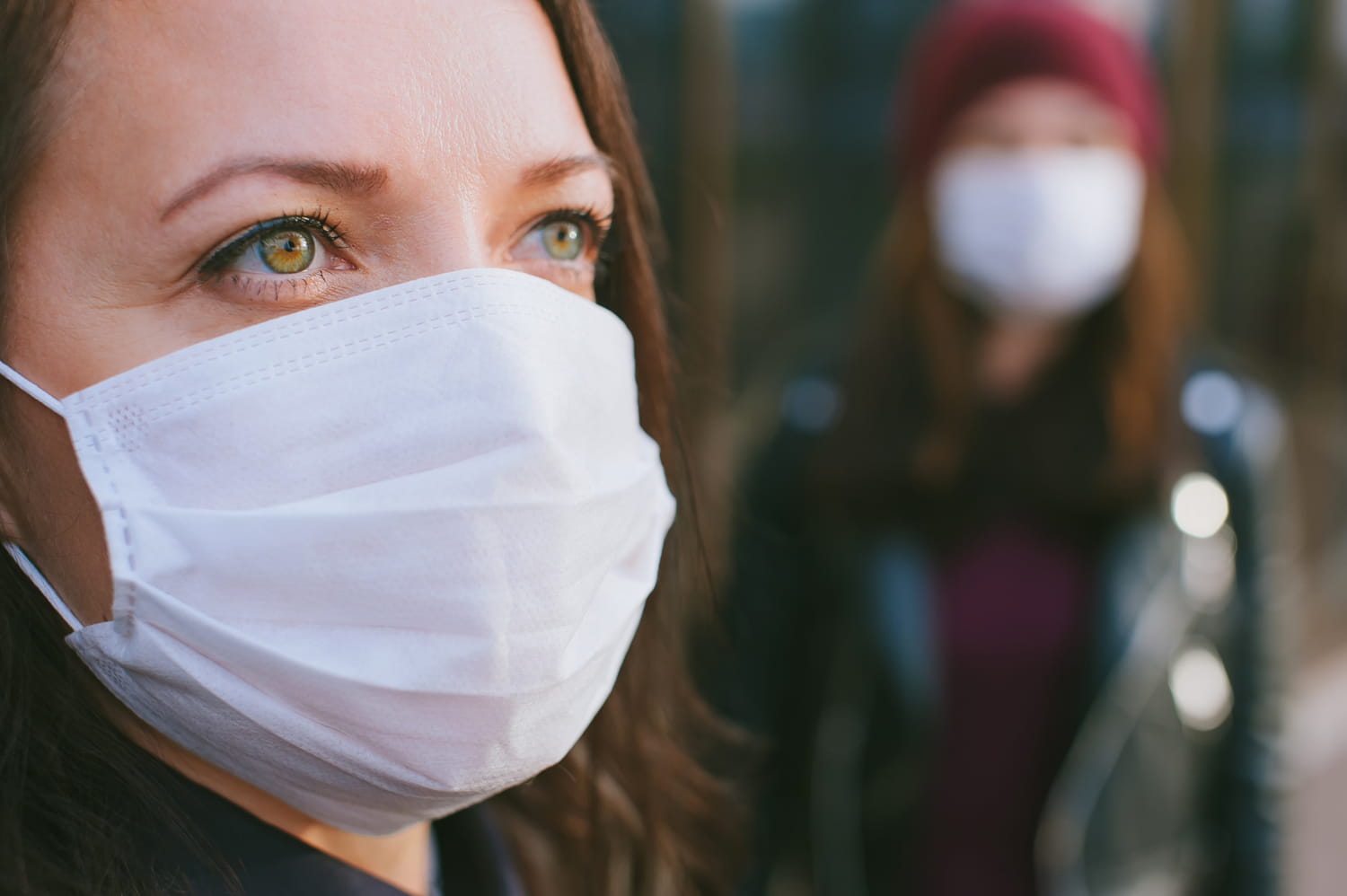Covid is still circulating but at a low level according to the latest Public Health France bulletin.
At the start of 2025, the virus is circulating much less compared to the years 2020, 2021, 2022, 2023 and 2024. But it is still present, causing illness and even deaths. People at risk of serious forms are still called upon to receive booster vaccinations against Covid-19.
Covid figures at the moment
According to the latest Covid bulletin published by Santé Publique France on January 2, 2025, Covid indicators are at low and stable levels in the city and in the hospital. In week 52 (December 23-29), among patients seen in general medicine consultation for an acute respiratory infection, the incidence rate of COVID-19 cases was estimated at 9 cases per 100,000 inhabitants vs. 18 per week previous. Public Health France recorded:
- 414 people hospitalized after suspected COVID-19 (0.6% of hospitalizations)
- 378 cases of Covid confirmed by SOS Médecins among 15-64 year olds (0.8% of consultations)
- 112 cases of Covid confirmed by SOS Médecins among those aged 65 and over (0.9% of consultations)
- Covid represents 1.7% of deaths notified to hospital

What is the majority Covid variant at the moment?
Since November 2023, it is the variant JN.1 which is dominant in France (99% of tests in September 2024) and globally. This variant is a sublineage of the Omicron variant, an omnipresent variant in France and around the world since 2022. Among the classified JN.1 sublineages, it is the KP.3.1.1 which dominates in France (56% of case of Covid) according to the latest bulletin from Public Health France.

5 anti-Covid measures (still) in force in 2025
► It is recommended to self-isolate if you test positive for Covid-19.
► It is recommended to wear a mask if you have symptoms suggestive of Covid-19 or if you are a person at risk of developing a serious form of the disease in the event of infection, particularly in enclosed or high-density places of population.
► Elderly people or people with risk factors are called upon to be (re)vaccinated against Covid-19 in the fall of 2024.
► It is always recommended to ventilate your home for at least 5 to 10 minutes per hour to reduce the risk of transmitting the virus. Same thing at work and in collective spaces.
► We must maintain barrier gestures, particularly in the event of a positive test and/or symptoms, in order to protect vulnerable people: regular hand washing, ventilation of enclosed spaces, wearing a mask in enclosed spaces conducive to gatherings (public transport For example).
What are the measures for Covid vaccination?
Vaccination against Covid-19 today primarily targets people at risk of serious forms (over 65 years old, pregnant women, etc.) with booster vaccinations recommended every fall (like the flu). Those over 80, immunocompromised people and residents of nursing homes and USLDs are also invited to get a booster vaccination in the spring and autumn of each year (at the same time as the flu vaccination which begins in mid-October). Anyone who wishes to be vaccinated against Covid (and who is not at risk) can do so in a pharmacy. The vaccine used for boosters is the Comirnaty® vaccine, a messenger RNA vaccine (Pfizer-BioNTech Laboratory).
What are the current measures regarding Covid isolation?
“Infected people are recommended to isolate themselves and of wear a mask if they need to go to a public place” advised the president of Covars Brigitte Autran in August 2023 in Libération. Isolation is no longer compulsory since February 1, 2023 but it is recommended by the health authorities if you test positive for Covid-19.
What are the current measures regarding contact cases?
There is no no more official “contact case” status. Since February 1, 2023, the realization of a screening test on the second day of notification of contact status for asymptomatic contact persons no longer required. On the other hand, symptomatic people continue to have to be tested and contact people can also do so if in doubt.
What are the current measures regarding wearing a mask?
THE wearing a mask is no longer compulsory nowhere. But given the resumption of Covid circulation, it remains recommended to wear it:
- if you are positive for Covid-19
- in the event of symptoms suggestive of Covid-19
- for prevention in closed and promiscuous places and public transport (metro, train, bus, plane, etc.);
- in large gatherings, including outdoors, for vulnerable people because of their age or pathologies;
- in the presence of elderly people, immunocompromised people or people suffering from chronic illnesses;
- for vulnerable people (elderly or immunocompromised people, etc.).
What are the Covid measures in hospitals in 2025?
► Wearing a mask may be made compulsory in certain hospitals inside buildings for patients leaving their rooms in hospitalization, in day hospitals, in consultations as well as for visitors, accompanying persons and those working with the patients (ex-paramedics).
► Wearing a mask remains compulsory for hospital staff in places where patients are located (conventional hospitalization, consultation, day hospital, circulation corridors).
Wearing a mask is no longer compulsory in offices, meeting rooms, transmission rooms, rest rooms, as well as in services and places not open to patients (laboratories, nurseries, etc.)
► Wearing a mask is compulsory, regardless of the location, for hospital staff who present symptoms suggestive of ENT or respiratory infection.
- Covid-19: International travel, Ministry of the Interior.
- MyCovidAdvice.Government
- Government.fr








